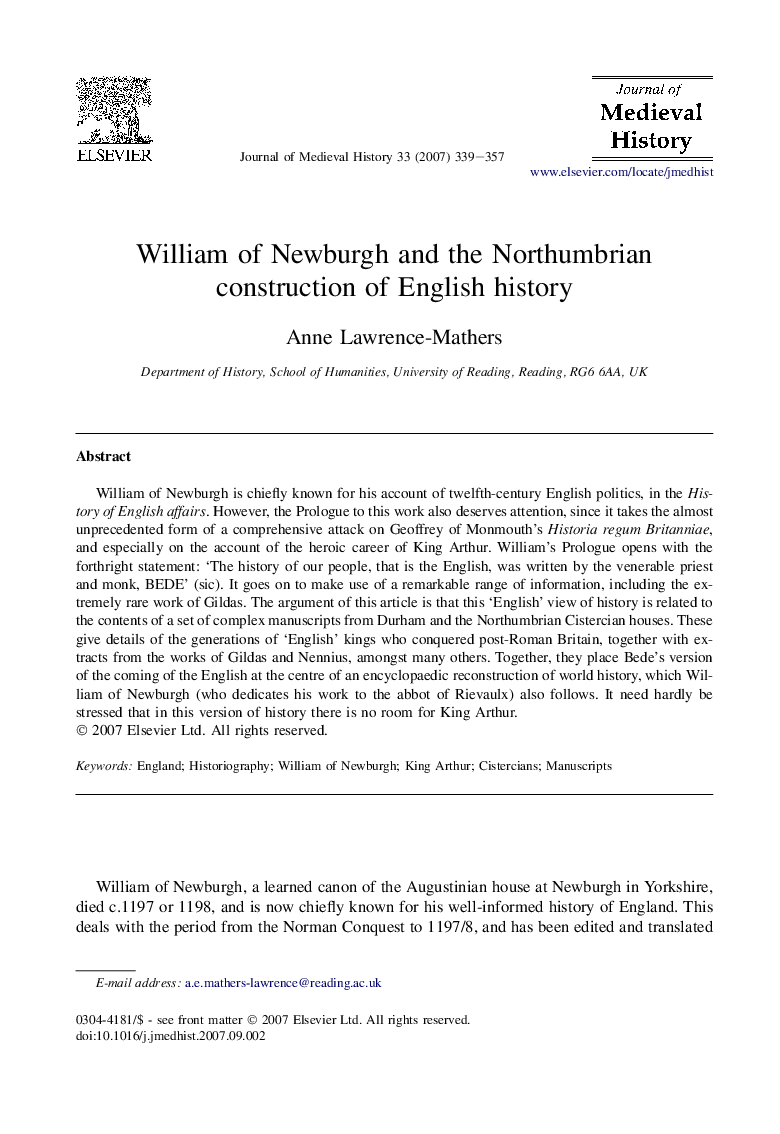| Article ID | Journal | Published Year | Pages | File Type |
|---|---|---|---|---|
| 1160124 | Journal of Medieval History | 2007 | 19 Pages |
William of Newburgh is chiefly known for his account of twelfth-century English politics, in the History of English affairs. However, the Prologue to this work also deserves attention, since it takes the almost unprecedented form of a comprehensive attack on Geoffrey of Monmouth's Historia regum Britanniae, and especially on the account of the heroic career of King Arthur. William's Prologue opens with the forthright statement: ‘The history of our people, that is the English, was written by the venerable priest and monk, BEDE’ (sic). It goes on to make use of a remarkable range of information, including the extremely rare work of Gildas. The argument of this article is that this ‘English’ view of history is related to the contents of a set of complex manuscripts from Durham and the Northumbrian Cistercian houses. These give details of the generations of ‘English’ kings who conquered post-Roman Britain, together with extracts from the works of Gildas and Nennius, amongst many others. Together, they place Bede's version of the coming of the English at the centre of an encyclopaedic reconstruction of world history, which William of Newburgh (who dedicates his work to the abbot of Rievaulx) also follows. It need hardly be stressed that in this version of history there is no room for King Arthur.
